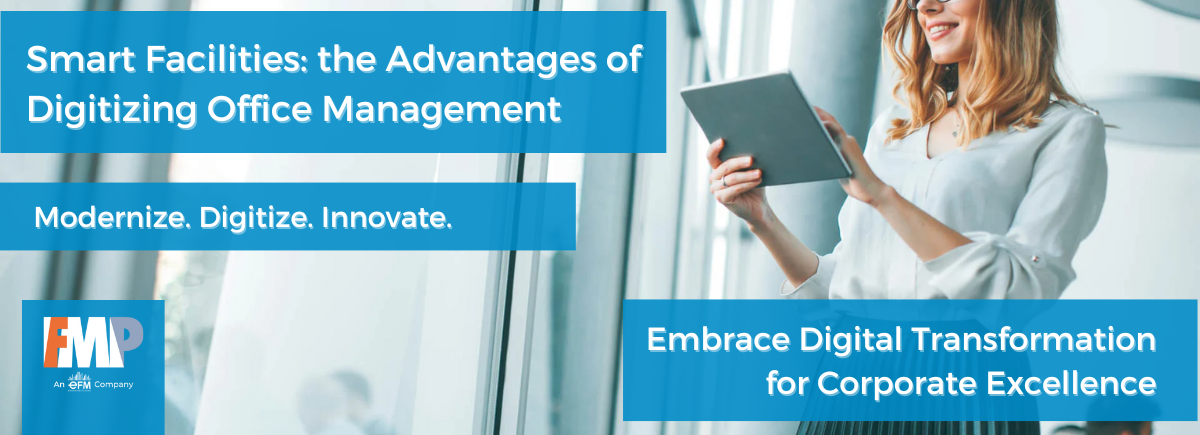
Smart Facilities: The Advantages of Digitizing Office Management
On Aug 21, 2024
The term “Smart Facility” embodies the concept of digital transformation in real estate management. This approach involves leveraging digital tools for both the operational aspects of facility management—ensuring the full availability and safety of assets—and the legal and contractual aspects that connect clients with various suppliers, reducing complexity and potential inefficiencies while enhancing control and service quality.
Managing Spaces and Services Better
Smart Facilities mean better management of spaces and services. Digitizing, which involves automating core facility management services, ensures space availability and supports an increasingly flexible and widespread work paradigm. This shift facilitates the adoption of transparent and verifiable procedures, supporting new business models that emphasize space flexibility, sustainability, and engagement. By addressing and eliminating past inefficiencies, Smart Facilities help Corporate Real Estate Managers who are continuously striving to maximize the value of their managed assets.
Trust in Digital Solutions
Any expression with the prefix “smart” signals a strong emphasis on digital solutions and the data-driven approach. Real estate management is no exception: at an operational level, the key enabler is undoubtedly the Internet of Things, the beating heart of all innovative models including the concept of Building 4.0. IoT sensors and devices collect valuable data relating to the ecosystem of spaces and services that constitute a modern property: data on space occupancy, usage, service conditions, infrastructure, and even the emotional state of the occupants. This data is fed into analysis platforms that extract insights and adopt a predictive approach, preventing failures, service interruptions, and associated costs, while improving occupant well-being. Outfitting corporate spaces with IoT devices offers companies numerous advantages: real-time data on space usage enhances optimization, fosters the creation of innovative as-a-service business models, and makes workplaces more engaging. At the same time, it provides a transparent and reliable basis for evaluating the quality the performance of service providers.
Innovation in Smart Facilities: AI, Blockchain and Smart Contracts
Smart Facilities are synonymous with innovation. This includes Artificial Intelligence (AI), which is used in predictive maintenance, Augmented Reality projects, and other areas, as well as Blockchain and Smart Contracts, which simplify the legal and contractual aspects of real estate management, all within the scope of digital transformation.
The complexity of managing large real estate portfolios is well known. Even though suppliers are often bound by strict contracts and Service Level Agreements (SLAs), it is not always possible to verify the quality of their performance with absolute certainty. This can lead to inefficiencies, delays, and costs that are difficult to quantify.
Smart Contract and Blockchain fit perfectly into the Smart Facility panorama and work together synergistically to provide the transparency, automation, execution quality and cost savings that Corporate Real Estate Managers seek. Smart Contracts bind parties by translating agreements into code, notarizing them on the Blockchain and verifying real-time execution (via IoT and other systems), which then automatically triggers the payment process.
A Synergy of Advanced Technologies
Smart Facilities represent a powerful synergy of different technologies aimed at significantly accelerating facility management by eliminating the limitations of the past. Smart Contracts bind parties, Blockchain makes agreements transparent, binding, and immutable (eliminating gray areas), and IoT works with Smart Contracts to monitor contractual performance automatically and transparently, boosting the overall efficiency of the management process.
Embracing the concept of Smart Facilities means revolutionizing how organizations manage their real estate and services. By leveraging IoT, AI, Blockchain, and Smart Contracts, companies can achieve unparalleled efficiency, transparency, and control over their real estate assets.